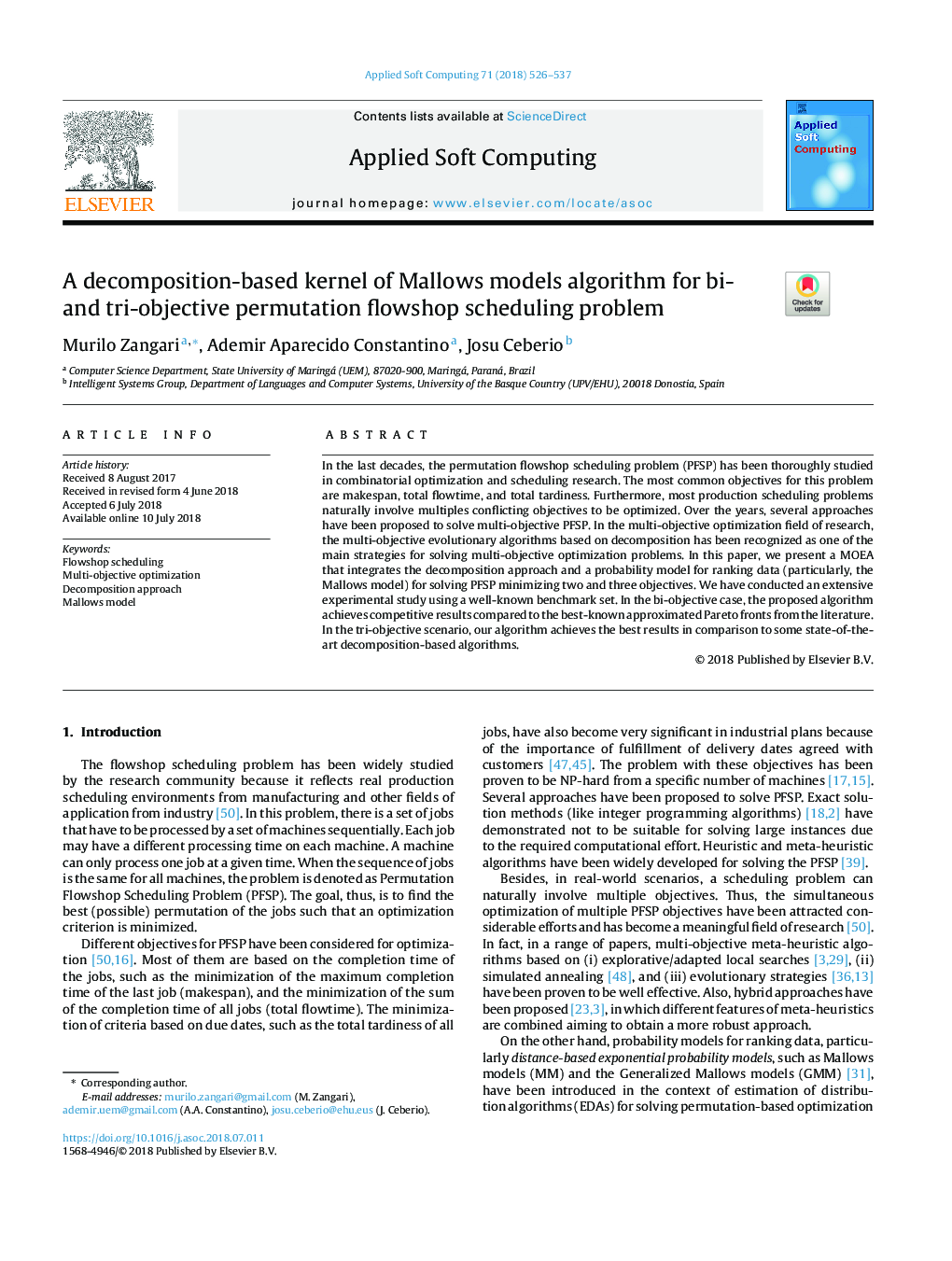| Article ID | Journal | Published Year | Pages | File Type |
|---|---|---|---|---|
| 6903291 | Applied Soft Computing | 2018 | 12 Pages |
Abstract
In the last decades, the permutation flowshop scheduling problem (PFSP) has been thoroughly studied in combinatorial optimization and scheduling research. The most common objectives for this problem are makespan, total flowtime, and total tardiness. Furthermore, most production scheduling problems naturally involve multiples conflicting objectives to be optimized. Over the years, several approaches have been proposed to solve multi-objective PFSP. In the multi-objective optimization field of research, the multi-objective evolutionary algorithms based on decomposition has been recognized as one of the main strategies for solving multi-objective optimization problems. In this paper, we present a MOEA that integrates the decomposition approach and a probability model for ranking data (particularly, the Mallows model) for solving PFSP minimizing two and three objectives. We have conducted an extensive experimental study using a well-known benchmark set. In the bi-objective case, the proposed algorithm achieves competitive results compared to the best-known approximated Pareto fronts from the literature. In the tri-objective scenario, our algorithm achieves the best results in comparison to some state-of-the-art decomposition-based algorithms.
Related Topics
Physical Sciences and Engineering
Computer Science
Computer Science Applications
Authors
Murilo Zangari, Ademir Aparecido Constantino, Josu Ceberio,
